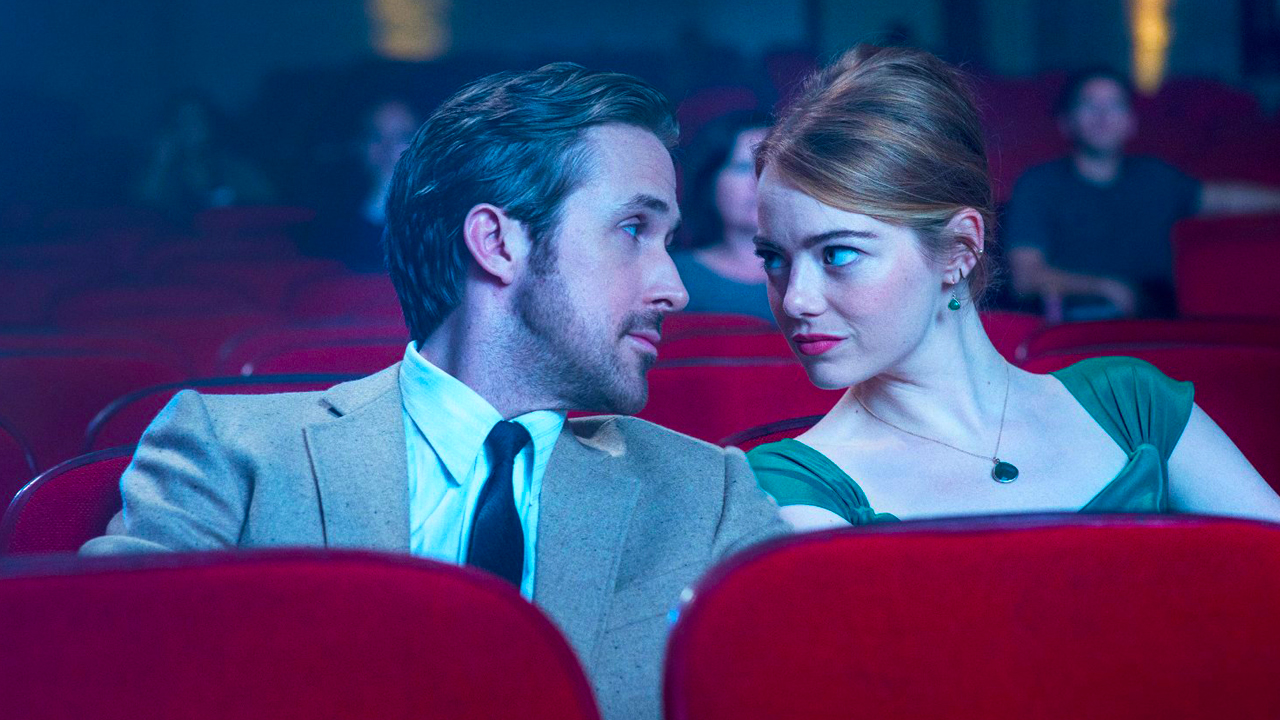Forget sex, violence, and loss - video games need to be better at romantic love to truly evolve
A wider emotional range can only be a good thing for video games
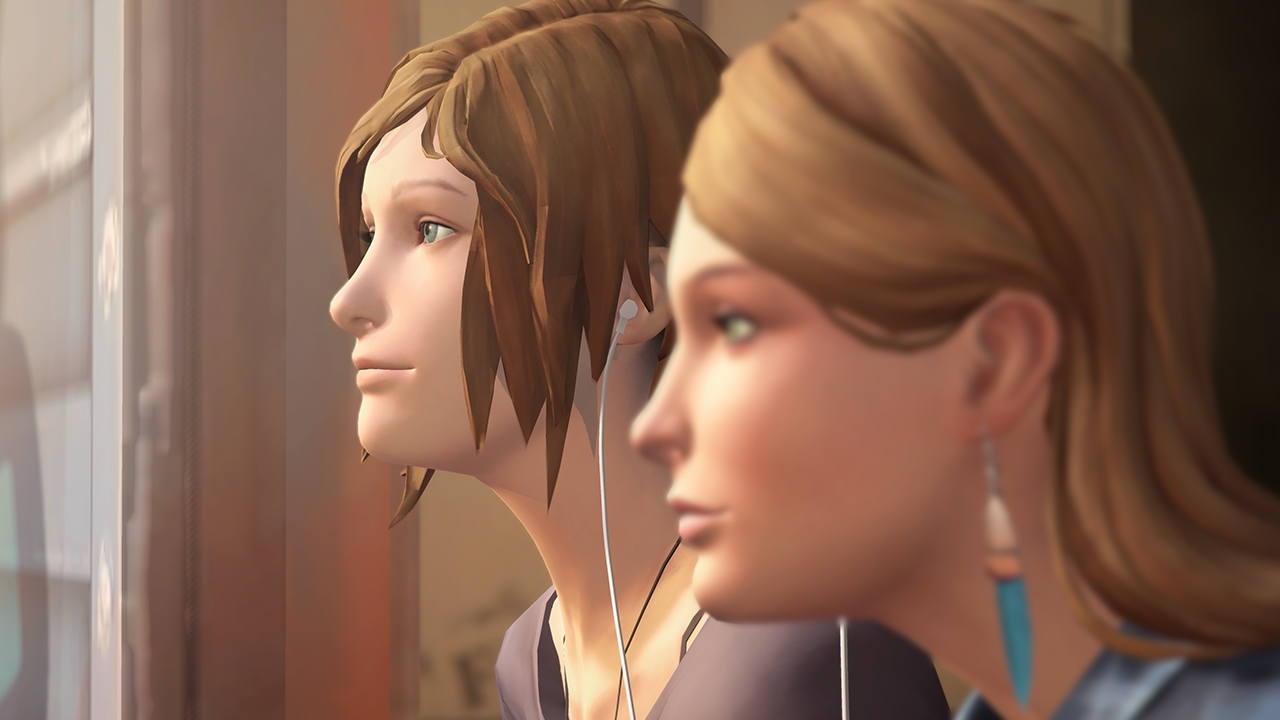
I think games are scared of love. Even the most heartwarming of moments in games are often shrouded in layers of humour, horror, or artistic license. Unlike in some of the most enduring movies of all time, love in games is often treated as a byproduct or narrative device used to heighten another agenda, or progress a plot, rather than being the actual subject and driving force of the experience. Yet games, arguably, are better placed to show the progress of romantic love than a 100 minute movie or several-episode slices of TV. They’re interactive, unlimited in their creativity, and unlike more passive media, require the player’s undivided attention. So, why are they bad at it? And what would it mean for games to be better at love?
It struck me, when I was playing the final episode of Life Is Strange: Before The Storm, that it was one of the few titles I’d ever played that simply placed the love between Chloe and Rachel above anything else. Not only that, but it goes to great pains to make that love believable, whether that be because they’re wonderful friends or romantically involved, dependent on your choices. Instead of zeroing in on the action beats, and moments of extreme conflict, Before The Storm wants the player to dwell on the quiet, tender scenes between the two teenagers. It’s sharing an iPod on a train; it’s planning your escape in a quiet street; it’s watching the stars projected onto a bedroom ceiling. These points in Chloe and Rachel’s story are by far the most intimate, yet they’re the stuff most games would traditionally skip over. More than that, Life Is Strange resists the urge to turn them into moments of titillation or physical love, removing the player’s option to ‘choose what happens’ and asking them instead to just look at how the pair are together and to share the feelings with them.
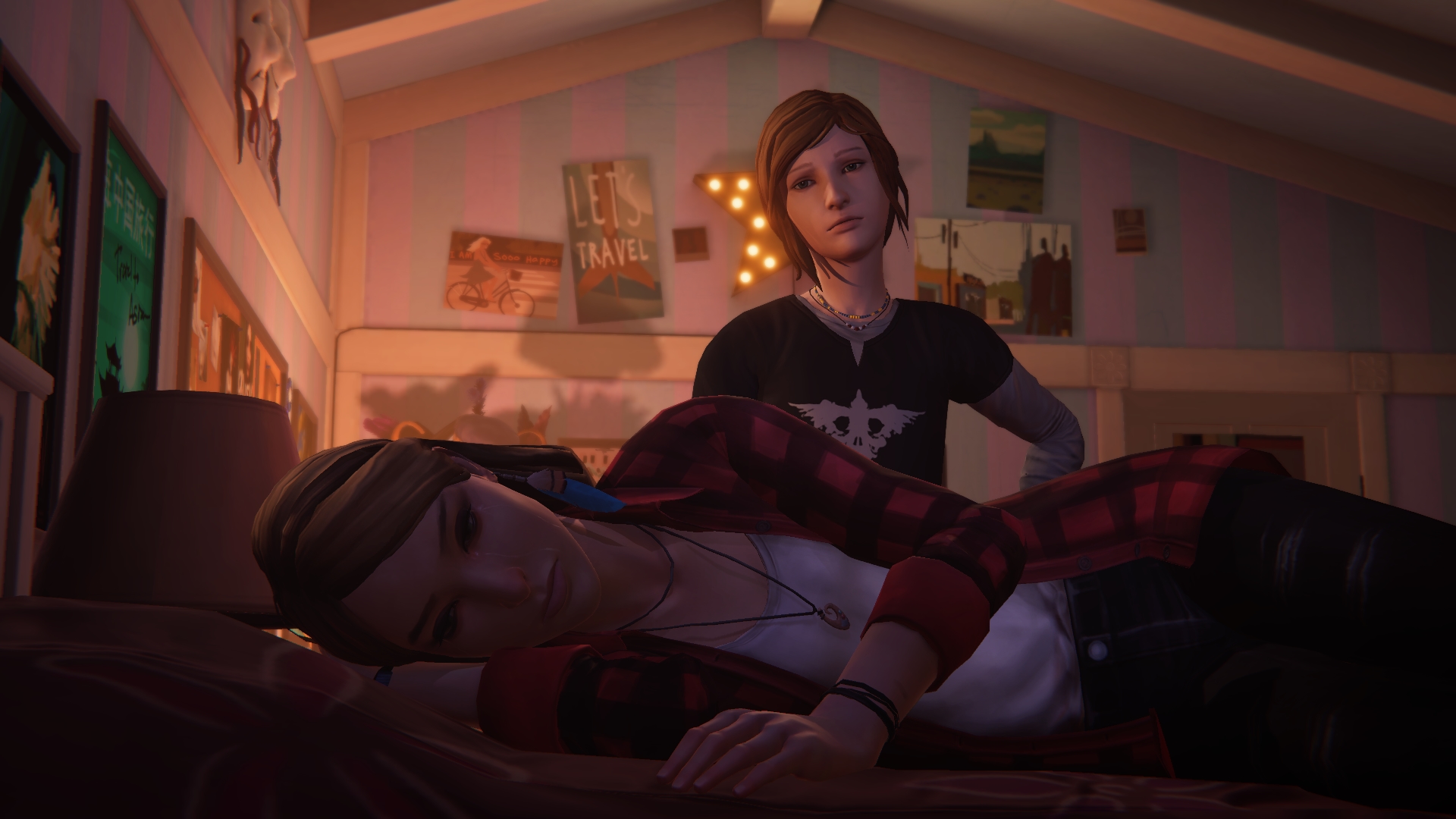
This might all seem a bit soft, like I’m telling you all to wrap your arms around each other, ban the bomb, and hand out free hugs in the street. To be honest, I’m just as big a fan of murdering robot dinosaurs in Horizon: Zero Dawn or stabbing my fellow man with a bayonet in Battlefield 1, but I do recognise that it’s important for both games AND players to have a better emotional range. Right now it seems that games haven’t quite gotten it right, even if there are an increasing number of examples where love is being better represented.
Is love really all we need?
You may think that games don’t need love. That their primary function is to entertain, and that when boiled down to the core genres that have traditionally made gaming successful, we - as a group of life-longe gamers - just want to shoot, race, and adventure our way through a series of fantasy worlds. We don’t need the subtlety and mundanity of love, and that stuff is best left to Hollywood. There’s clearly an argument there, but for games to truly evolve as an artform, and to rival the maturity of films, TV, and books, they need to give us more realistic representations of romance and mutual love to mirror the already excellent depictions we see of violence, grief, and hatred.
We’re definitely making progress when it comes to familial and parental love. The Last of Us, for example, is a mature story about the paternal relationship that forms between Joel and Ellie, and it’s extremely well handled. There’s a darkness to what that bond becomes, as we see Joel’s selfish choices play out at the end of the game, and although that feels very typical of the way games tend to treat this kind of relationship - as a way to shock or surprise players - there’s a richness and intelligence to it that’s all too rare. More encouragingly, the Last of Us’ ‘Left Behind’ DLC presents a delightful bond between Ellie and Riley that supersedes the grim action sequences of the original game and actually tells an engaging story about two girls growing to know and like each other.
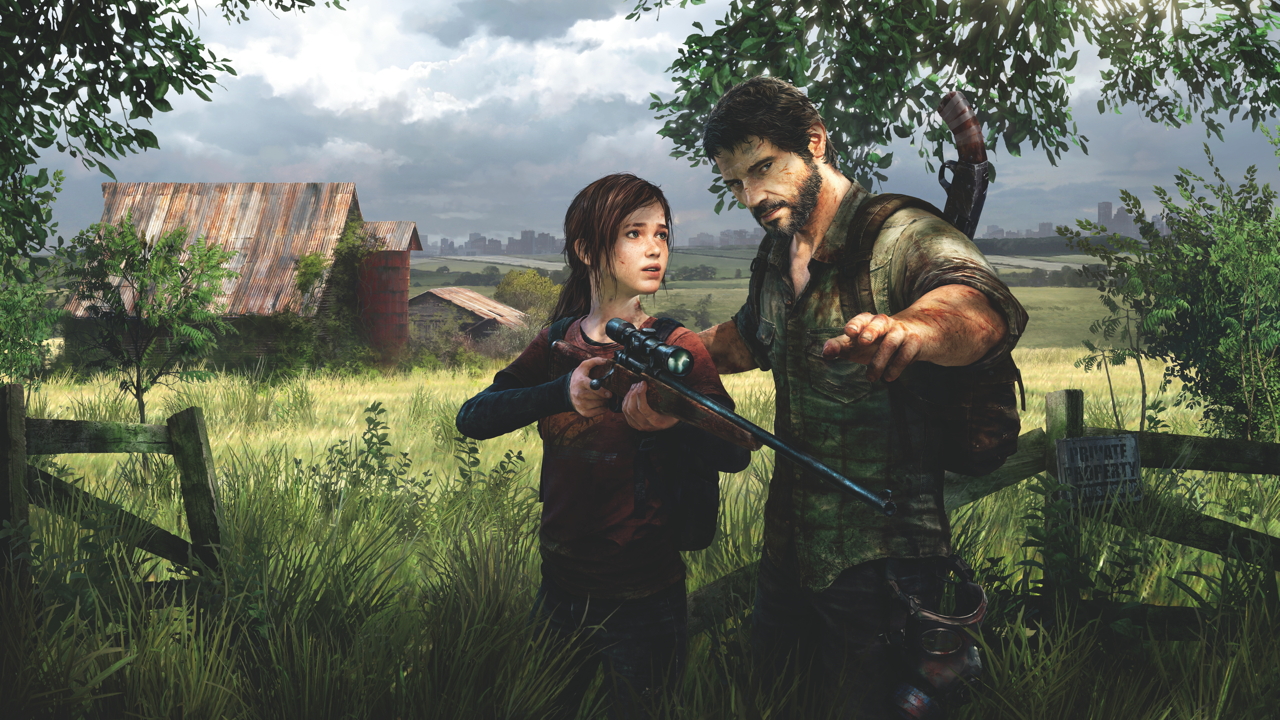
The Last of Us very much built on the work of Telltale’s The Walking Dead, which established an excellent relationship between Clem and Lee. Again, though, the parental love between the characters was perpetually set against a background of peril and grim player choices - largely because of the core subject matter in both games.
Often romantic love that does appear in games is set against a backdrop of loss, building the player up only to knock them down harder - and frequently simply for use as a catalyst for more bloodshed, vengeance, or tragedy. To The Moon features a sweet story between its main characters, but it’s constantly undermined by loss. Perhaps the best example before Life Is Strange: Before The Storm comes with Uncharted 4, which does take time to build the relationship between Nate and Chloe (and, to an extent, his brother too), giving us a snapshot of their marriage away from all the shooting and treasure plundering.
Sign up to the GamesRadar+ Newsletter
Weekly digests, tales from the communities you love, and more
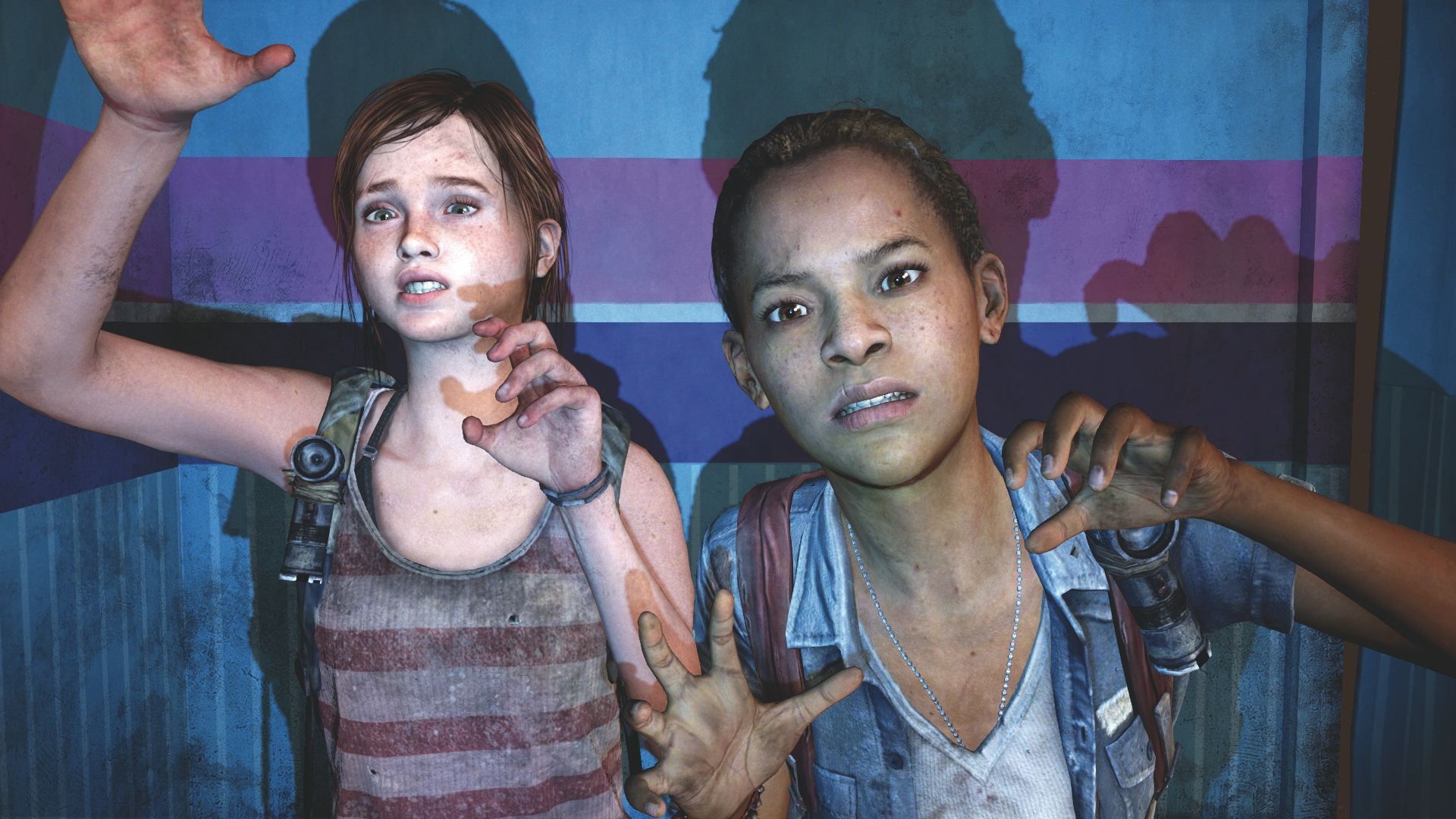
Troublingly, however, we’re really only shown the relationship so that the game can tell us how dissatisfied Nate is with ordinary life, when compared to his more action-packed ‘career’. Uncharted does send positive messages about how the pair settle down after the events of U4, Chloe having forgiven Nate for breaking his promises to her, and that does paint a more realistic representation of modern love… but it feels more geared towards creating the expected happy ending, rather than fostering a realistic dynamic between the two.
The start of something beautiful
Credit to Naughty Dog for trying and succeeding, to an extent, at representing love during its past couple of games. It’s one of only a handful of AAA developers treating the subject with any kind of seriousness or humanity. Many are still presenting the ‘Hollywood fiction’ version of love that sees our hero - usually male - having a quick kiss with a secondary female character during a couple of cut-scenes. Occasionally they’ll declare their love and announce that they’ll do something heroic, before swaggering off to be the protagonist. That’s fair enough, and games like Assassin’s Creed Origins and Wolfenstein 2 (two recent examples of exactly what I’m talking about here) are primarily about stabbing and shooting. But that brings me back to my original point, in that we don’t have enough video games where the relationships between people, and the love that develops between them, is the central focus. Until that happens more often - as it does in Life Is Strange - video games will always miss out on a huge aspect of emotional range, and inevitably won’t be taken as seriously as a mature entertainment medium.
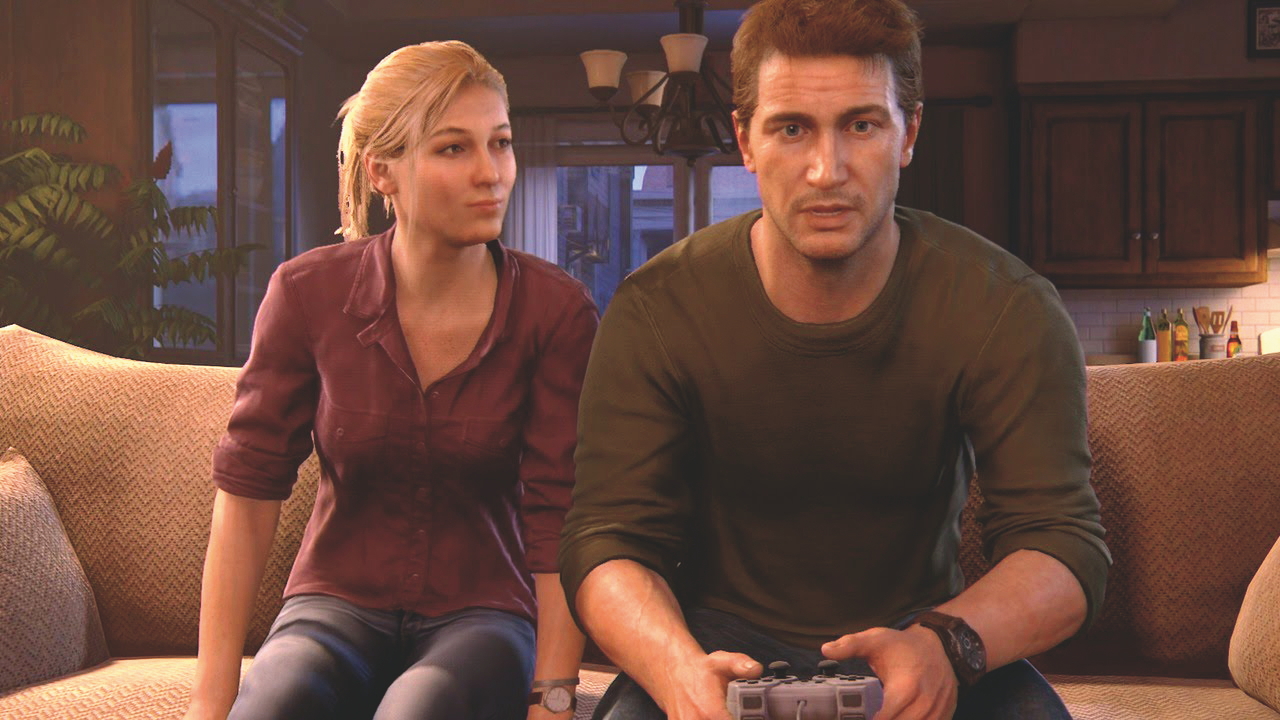
And those games which are daring to explore themes of love - Hellblade: Senua’s Sacrifice is another excellent example - need to step away from the safety of tragedy. We’ve grown accustomed to trauma and violence in our interactive experiences, and these have (ironically) become easier emotions for players to accept. Love heightens tragedy, sure, and the idea of loss, anger and death easily creates the demand for action, adventure, and general peril that is very much the bread and butter of traditional video games. But more and more we need love to be more than just a motivation or emotional tool in games… we need it to be the central premise.
Looking for love in the future of games? Check out the upcoming games of 2018 and beyond.
